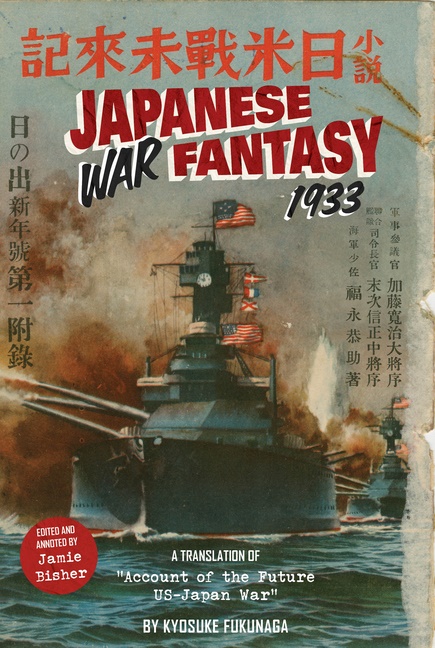A bombshell dropped onto Honolulu docks in 1933—by ominous coincidence, on December 7. It was merely a crate of Japanese pulp fiction titled Account of the Future US-Japan War. Unlike other popular war fiction of the day, this riveting techno-thriller was written by a Japanese naval commander with forewords by two prominent admirals of the imperial navy. The book gave readers a foretaste of the strategy, tactics, and weaponry of the next world war. Author Kyosuke Fukunaga's dramatic tale foretold the roles of naval air power, submarines, radio communications, intelligence, civil affairs, propaganda, and racial unrest. The book details Japanese attacks on Guam, the Philippines, and Hawaii. But Fukunaga’s most eye-opening revelations reveal Japanese strategists’ faulty expectations of an enemy that supposedly lacked the will to fight. US Customs quietly confiscated Fukunaga's book—prompted by concerned Japanese Americans, who thought the book might seduce Hawaiian Nikkei to treason and poison race relations. Nevertheless, this unusual ban of a work of fiction ignited headlines around the world after US intelligence leaked a translation of the novel to a Hearst newspaper in Washington, DC. The incident faded from public memory, and the translation was tucked into a file in the military intelligence archives. In 1941, a slew of Japanese bombshells rained on Pearl Harbor and turned Fukunaga’s fantasy into reality. Japanese War Fantasy 1933 delves into the content, background, and impact of Fukunaga’s explosive novel and also examines other prewar Japanese propaganda efforts in the Americas. Using the contemporaneous translation of Fukunaga’s text by military intelligence linguist Maj. Edward J. Witsell, editor Jamie Bisher has presented an edited and annotated version of the controversial novel, illustrated with artwork and photographs from the Naval Historical Center, National Archives, Library of Congress, and Gordon W. Prange Papers at the University of Maryland.


